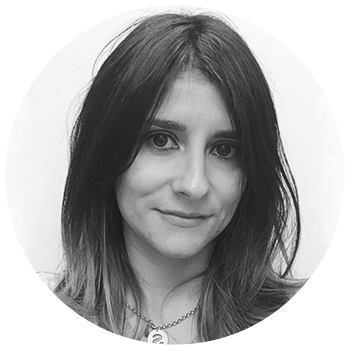Sara Quintela Realista completed the PhD in Chemistry in 2018/02/05 by Universidade de Lisboa Instituto Superior Técnico, MSc in Chemistry in 2013/11/28 and BSc in 2011/09/08 in Chemistry by Universidade de Lisboa Faculdade de Ciências (FCUL). After that she became a post-doctoral researcher of the FCT-financed project “Chemical Synthesis Using Earth-Abundant Metal Catalysts”, with reference PTDC/QUI -QIN/28151/2017 in Universidade Nova de Lisboa Instituto de Tecnologia Química e Biológica.
She is currently a Junior Researcher CEEC-FCT at (FCUL) working in inorganic chemistry and electrochemistry fields. She published 15 articles in international peer-reviewed scientific journals and 1 book chapter. One of the published papers was selected as hot paper and cover feature (Chem Eu.r J.) and she is corresponding author of 1 paper. She has received 3 awards: Young Scientist 2013 from Fundação Calouste Gulbenkian that awards the most promising young national researchers, other from Portuguese Chemical Society where she was selected to be one of the two representatives of Portugal in a Young Scientist European Contest (2018) and an honorary mention within the portuguese young chemist award 2020. She co-supervised 2 MSc dissertation and 1 work of course completion of LSc/BSc. She was member of organising committee of 1 international event and member of the scientific and organising committee of another international event. She participates and/or participated as Principal investigator in 1 project(s), Research Fellow in 4 project(s) and Researcher in 6 project(s).
She works in the area(s) of Exact Chemical Sciences with emphasis on Inorganic and Organic Chemistry and Electrochemistry. She is skilled in inorganic synthesis, electrochemistry and catalysis fields. During BSc, she synthesised Co(I) and Fe(II) organometallic compounds for their immobilisation in silicon materials and their use as heterogeneous catalysts for epoxidation reaction. After, during MSc, she began to gain expertise in electrochemistry by preparing new electrodes based on inorganic complexes for O2 electroreduction that can be used for fuel cells (cleaner energy). In the PhD, she consolidated all the knowledge acquired before and worked in the CO2 electro- and photoreduction using inorganic complexes and materials. As post-doctoral researcher, she worked with Mn(I) organometallic complexes with carbene ligands for the activation of small molecules, specifically CO2 and H2.
Her current interest is focused on the preparation of new electrode materials using her inorganic/organic synthetic and electrochemical skills to fulfil society’s needs.
Research topics
Organic/Inorganic synthesis
Modification of elecrodes‘ surfaces
Electro(Photo)reduction of CO2
Electrochemical characterisation of compounds



